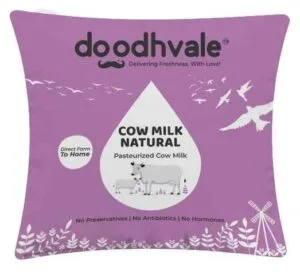Exploring the Pros and Cons of Cow Milk: A Comprehensive Guide

Strong 8k brings an ultra-HD IPTV experience to your living room and your pocket.
Cow milk has been a staple in the human diet for centuries, cherished for its nutritional value and versatility. However, in recent years, it has also become a subject of debate due to concerns about health, animal welfare, and environmental impact. In this blog post, we'll delve into the pros and cons of cow milk to provide a comprehensive overview of this contentious topic.
The Pros:
1. Nutritional Value: Cow milk is a rich source of essential nutrients such as calcium, protein, potassium, and vitamins B2 and B12. These nutrients play crucial roles in bone health, muscle function, and overall well-being.
2. Digestibility: For many people, cow milk is easily digestible and provides a quick and convenient source of nutrition. It contains lactose, a type of sugar that can be efficiently broken down by the enzyme lactase in most individuals.
3. Versatility: Cow milk serves as a base for various dairy products, including cheese, yogurt, butter, and cream. Its versatility makes it a fundamental ingredient in countless recipes and culinary traditions worldwide.
4. Economic Accessibility: In many parts of the world, cow milk is readily available and relatively affordable compared to alternative milk options.
5. Cultural Significance: Cow milk holds cultural significance in many societies, where it is deeply ingrained in traditions, ceremonies, and culinary practices.
The Cons:
1. Lactose Intolerance: Despite its digestibility for many, cow milk can cause discomfort and digestive issues in individuals with lactose intolerance, a condition characterized by the inability to digest lactose properly.
2. Allergies: Cow milk allergy is one of the most common food allergies, particularly among infants and young children. It can trigger allergic reactions ranging from mild to severe, including hives, swelling, and anaphylaxis.
3. Environmental Impact: The dairy industry contributes to environmental issues such as greenhouse gas emissions, water pollution, and deforestation. The production of cow milk requires significant land, water, and feed resources, contributing to habitat destruction and biodiversity loss.
4. Animal Welfare Concerns: The intensive farming practices associated with large-scale dairy production have raised concerns about the welfare of dairy cows. Issues such as confinement, over-milking, and separation of calves from their mothers are commonly cited ethical dilemmas.
5. Health Considerations: While cow milk is a valuable source of nutrients, excessive consumption has been linked to health issues such as heart disease, certain cancers, and osteoporosis. Additionally, concerns have been raised about the use of hormones and antibiotics in dairy farming and their potential impact on human health.
Conclusion:
Cow milk remains a contentious topic, with advocates praising its nutritional benefits and cultural significance, while critics raise concerns about health, environmental, and ethical issues. Ultimately, the decision to consume cow milk or explore alternative options is a personal choice influenced by factors such as dietary preferences, health considerations, and ethical beliefs. As awareness grows about the complexities surrounding dairy production, consumers are increasingly seeking out sustainable and ethically produced milk alternatives to meet their nutritional needs while minimizing environmental impact and supporting animal welfare.
Note: IndiBlogHub features both user-submitted and editorial content. We do not verify third-party contributions. Read our Disclaimer and Privacy Policyfor details.


